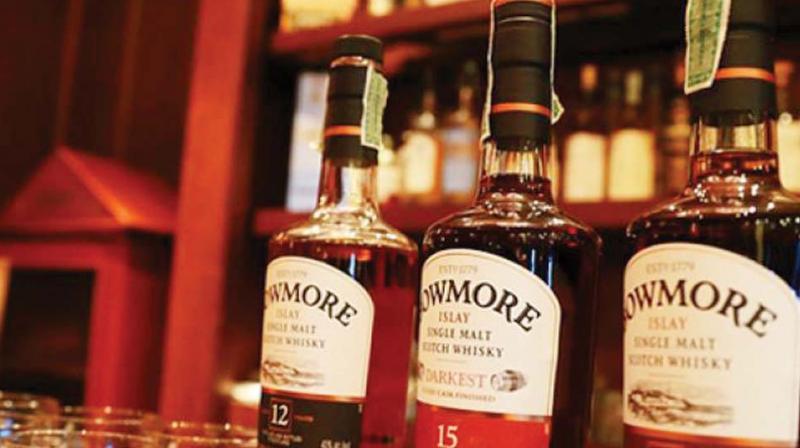Andhra Pradesh-run liquor outlets not viable in the long run

VIJAYAWADA: Even though AP is going ahead with sale of liquor through AP Beverages Corporation Limited, the state government owned company, it is being regarded as part of its efforts to implement total prohibition in sale of liquor in a phased manner.
Sale of liquor and beer in states like Kerala where the government runs liquor shops, witnessed a steep decline in the last seven years while the same had witnessed rapid growth in AP where liquor is being sold mainly by the private sector.
In AP, sale of liquor and beer between 2011-12 and 2018-19, witnessed a hike of 2.91 crore cases as liquor business is being run mainly by the private sector; the state’s population was registered at 5.30 crore in 2018. In Kerala, where liquor business is under government control, it has come down by 2.14 lakh cases with its population at 3.44 crore.
In Tamil Nadu, which has a population of 8.2 crore, it witnessed an up-ward trend to the extent of 86.22 lakh cases even though the liquor business is under state government's control.
The Tamil Nadu government set up Tamil Nadu State Marketing Corporation Limited (Tasmac) under the Companies Act, 1956, and took over distribution of arrack and Indian Made Foreign Spirits in the state from 1983.
The AP government seems to be trying to ape Tamil Nadu model of sale of liquor as it appears to be quite successful by di-nt of steep rise in the volume of liquor business but critics argue that wh-ichever party is in power, its supporters take over the liquor trade partially by setting up number of belt shops and reportedly earn Rs 500 crore illegally per annum and use such money in the next elections to influence the voters to support their party. Liquor traders say that Karnataka and Delhi experimented with government run liquor shops and faced failure. Simila-rly, Jharkhand also experimented with the same and witnessed failure.
Referring to some of the reasons like uncontr-olled belt shops and MRP violations where the AP government intended to go ahead with government-run liquor shops, the liquor traders maintain that whenever the excise authorities started cancelling the licence af-ter linking the licenced retail outlet to belt shops, the traders stopped invo-lving themselves in such illegal business.
Meanwhile, the excise authorities managed to control MRP violations by penalising the traders heavily.
The authorities are also wondering why the state government intends to go ahead with such a decision even though it is not so viable in the long run. Moreover, the liquor traders said that in 2015-2017, the then state government experimented with government participation to the extent of 20 per cent in liquor business while leaving the remaining 80 per cent to private sector and roped in excise officials from APSBCL to sell liquor in shops which remained un-auctioned. But they witnessed a big failure and such shops were shut down within just three to four months after their commencement.
A liquor trader said, “As YSRC made an electoral promise to the people in AP to implement prohibition of liquor in a phased manner, it is going ahead to fulfil it blindly. As several states which witne-ssed failure while experimenting with government-run liquor shops, AP will also become one of them in due course of time. If the state government gives us a chance to explain pros and cons of such an experiment, we are ready to explain but we don’t expect it from them as they are eager to fulfil their poll promise irrespective of the outcome.”

